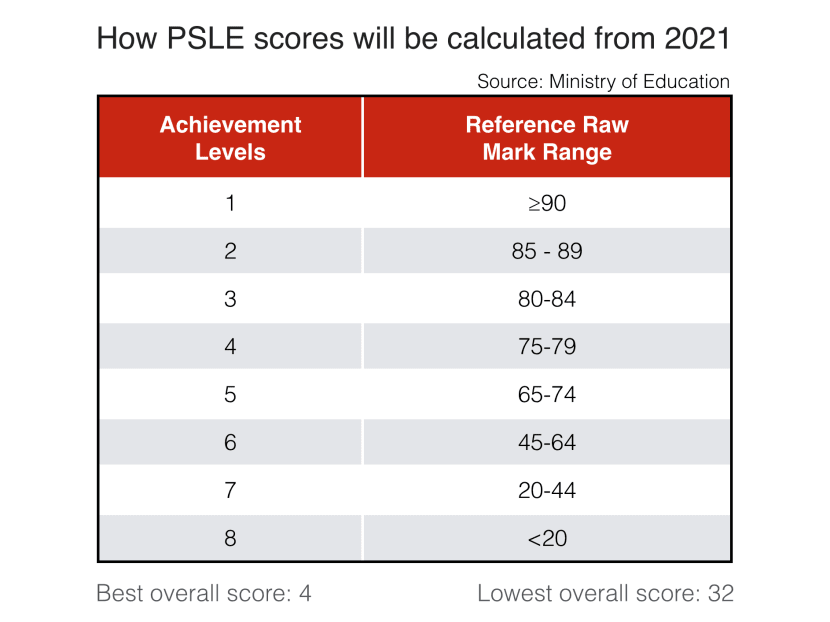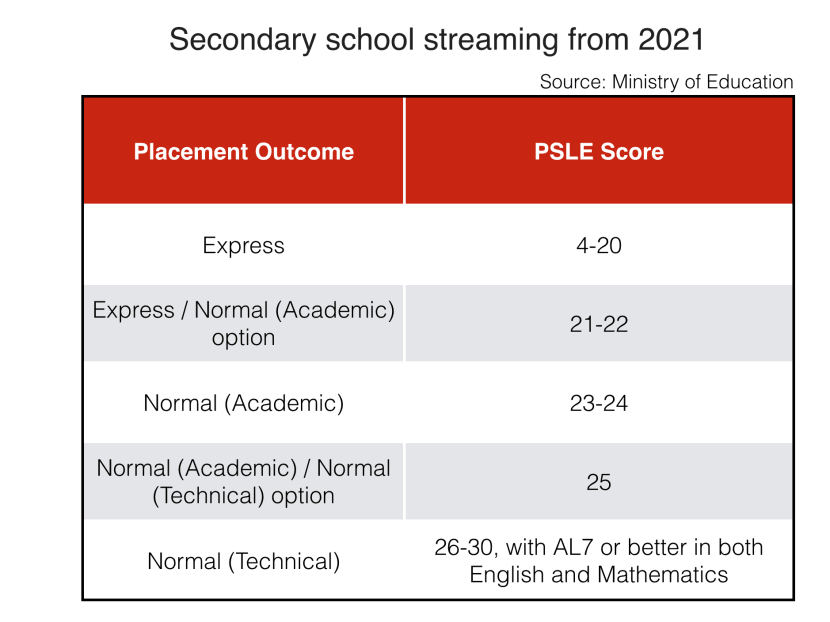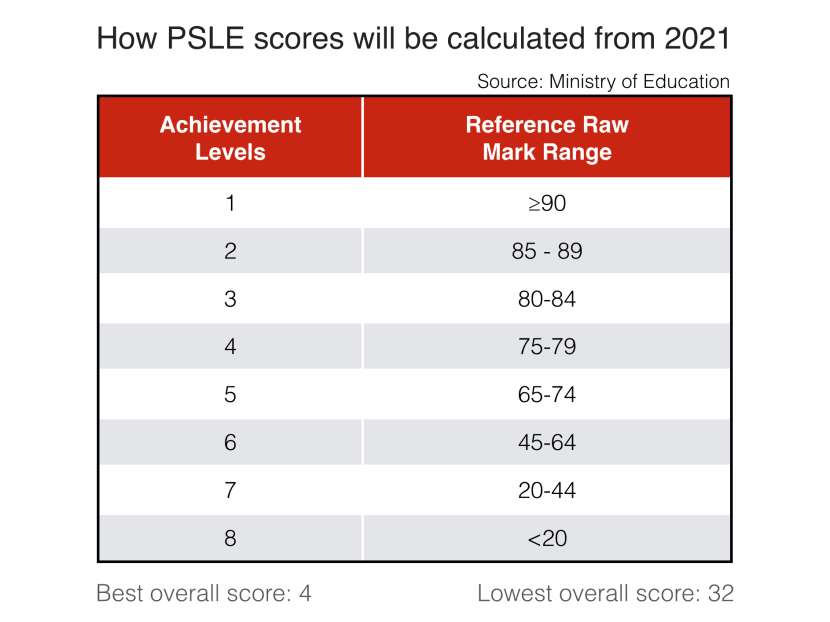New grade bands to replace PSLE T-score
SINGAPORE — The “T-score” system, which has been in place since the Primary School Leaving Examination (PSLE) was introduced more than five decades ago, will be replaced by eight Achievement Levels (AL) from 2021, where one’s placing is delinked from his peers’ performance.
SINGAPORE — The “T-score” system, which has been in place since the Primary School Leaving Examination (PSLE) was introduced more than five decades ago, will be replaced by eight Achievement Levels (AL) from 2021, where one’s placing is delinked from his peers’ performance.
The Ministry of Education (MOE) on Wednesday (July 13) unveiled details of the biggest revamp to the national exams where, depending on the marks a student gets for a subject, he will be classified in a range of bands — for instance, AL1 for 90 and more points, AL2 for 85 to 89 points, and so on. The ALs for the four PSLE subjects will be added to give a PSLE score of between four and 32, which determines a student’s options for secondary schools.
The current Primary 1 cohort will be the first to sit for the PSLE under the new system.
Currently, the T-score (short for transformed score) reflects how well a student did in relation to others in the cohort — using a mathematical formula. A student may have got high marks for a subject, but would receive a lower T-score if most of his peers performed better than him.
(Click to enlarge)

Plans to tweak the PSLE scoring system were first announced by Prime Minister Lee Hsien Loong during the National Day Rally in 2013, as he noted the “tremendous stress” on students and families. The changes, he had said, would “reduce excessive competition to chase that last point”.
Commenting on the changes yesterday, Acting Minister for Education (Schools) Ng Chee Meng said the new scoring system is intended to ease the pressure students face in competing against their peers’ performance.
The MOE said the new scoring system will be a better gauge of a child’s performance and students will also no longer be as finely differentiated on the basis of every mark. Instead of over 200 T-score aggregates, there will be 29 possible PSLE Scores under the new system.
(Click to enlarge)

The Secondary One posting system will also be tweaked in tandem to account for more students getting the same PSLE Scores while schools will also be less differentiated based on cut-off points.
Academic merit will still come first in determining which secondary school a student is posted to. But where there are more students with identical PSLE Scores vying for places in a particular school, a new “tie-breaker” of choice order of schools has been introduced — a student who picks the school higher in his list of six will have priority.
The MOE said it will take the next few years to thoroughly test the new exam scoring and posting system before it is implemented in 2021. In the meantime, secondary schools will have time to strengthen their distinctive programmes while MOE engages parents and students to better understand the new system. Indicative cut-off points for schools, based on the 2020 PSLE scores, will also be provided for the pioneer cohort using the new system.
On how it arrived at having eight AL bands, the MOE said it offered a good balance between providing a broad indication of students’ progress after six years of primary school and a scenario of too many students having the same PSLE Scores, which would mean more balloting in Secondary One posting.
Responding to arguments that the new system did not go far enough in moving away from academic emphasis, Mr Ng said Singapore’s education system has been strong and robust, and has done well over the past 50 years in preparing children to meet challenges.
“So in such a good system, I think it is premature to revolutionise it until such a time that we’re clearer. We’ve taken steps to engender more innovative and creative learning environments ... Some things are best evolved and not revolutionised,” he added.
As to whether the new scoring system will be enough to ease the pressure of the PSLE, Mr Ng said it will take parents, educators and society in general “to move this school system forward so that we reduce the competitiveness of it, and encourage creativity and collaboration of succeeding together”.







